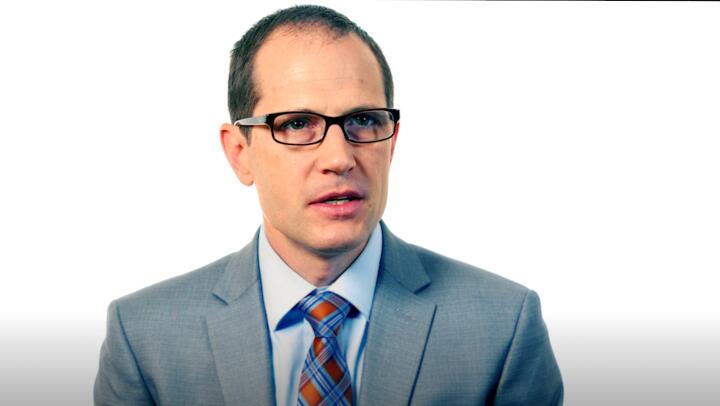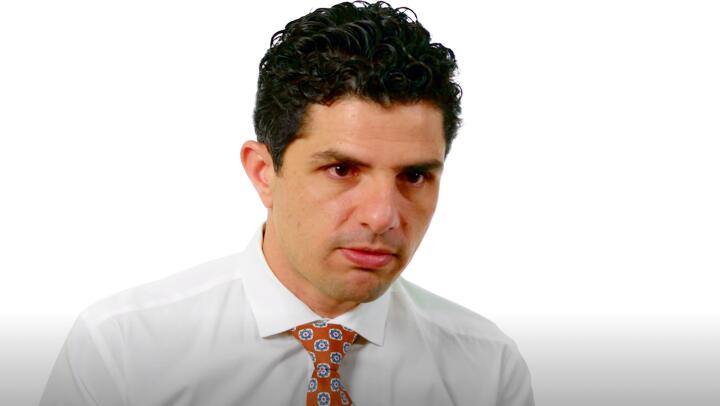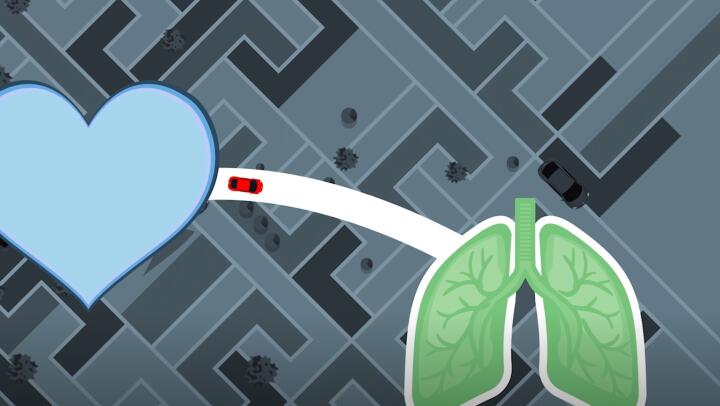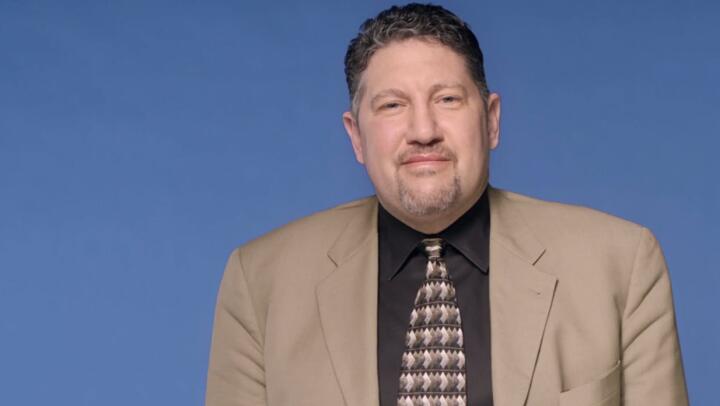The Stages of Heart Failure

Medically Reviewed By William C. Lloyd III, MD, FACS
Written By Erin Azuse, RN on March 28, 2021
The American College of Cardiology and the American Heart Association have defined four stages of heart failure: Stages A through D. These not only explain the progression of this condition, but can also be used to help provide guidelines for treatment.
-
 Heart failure stages guide treatment optionsHeart failure, when your heart does not pump well enough to meet your body’s need for blood and oxygen, is a chronic condition that worsens over time. If you are someone who has been diagnosed with heart failure, it’s important to understand what stage you’re in and what treatment options are available. Let’s examine each stage in more detail.
Heart failure stages guide treatment optionsHeart failure, when your heart does not pump well enough to meet your body’s need for blood and oxygen, is a chronic condition that worsens over time. If you are someone who has been diagnosed with heart failure, it’s important to understand what stage you’re in and what treatment options are available. Let’s examine each stage in more detail. -
 Stage AIf you are Stage A, you can engage in normal activities without difficulty and don’t show any signs of heart failure during an examination by a doctor. Yet you are considered high-risk for developing heart failure in the future. Certain medical conditions contribute to this risk, such as obesity, high blood pressure, diabetes, and coronary artery disease. You may also be considered Stage A if you take medications that can damage your heart or if you have a family history of heart failure.
Stage AIf you are Stage A, you can engage in normal activities without difficulty and don’t show any signs of heart failure during an examination by a doctor. Yet you are considered high-risk for developing heart failure in the future. Certain medical conditions contribute to this risk, such as obesity, high blood pressure, diabetes, and coronary artery disease. You may also be considered Stage A if you take medications that can damage your heart or if you have a family history of heart failure. -
-
 Treatment for Stage ASince you don’t have heart failure yet, treatment is aimed at decreasing your risk factors. Incorporate regular activity into your daily routine, and lose weight if necessary. Eat a nutrient-rich diet, and avoid processed foods that are high in fat and sodium. Try to control cholesterol and blood pressure. Eliminate cigarettes, alcohol, and recreational drugs.
Treatment for Stage ASince you don’t have heart failure yet, treatment is aimed at decreasing your risk factors. Incorporate regular activity into your daily routine, and lose weight if necessary. Eat a nutrient-rich diet, and avoid processed foods that are high in fat and sodium. Try to control cholesterol and blood pressure. Eliminate cigarettes, alcohol, and recreational drugs.
Manage your diabetes carefully. Your doctor may consider two types of medication, especially if you have diabetes or high blood pressure: a beta-blocker or an angiotensin converting enzyme inhibitor (ACE-I)/ angiotensin II receptor blocker (ARB). These can help lower blood pressure and decrease how hard your heart has to work. -
 Stage BIn Stage B, your heart has structural damage, but you don’t have any symptoms of heart failure. You may have had a previous heart attack or have heart valve disease without any complications. The left ventricle of your heart may not be functioning as well as it should. If you had an echocardiogram, it would probably show a low ejection fraction, meaning that your heart is not pumping out as much blood as is should with each heartbeat.
Stage BIn Stage B, your heart has structural damage, but you don’t have any symptoms of heart failure. You may have had a previous heart attack or have heart valve disease without any complications. The left ventricle of your heart may not be functioning as well as it should. If you had an echocardiogram, it would probably show a low ejection fraction, meaning that your heart is not pumping out as much blood as is should with each heartbeat. -
 Treatment for Stage BAny treatments or lifestyle changes you made for Stage A will likely continue for Stage B. If your doctor has not yet started you on a beta-blocker, ACE-I, or ARB, you’ll probably begin taking this medication now. Your doctor may also add another medicine known as an aldosterone antagonist. This can help with sodium and water retention, making it easier for your heart to pump. Underlying cardiac issues may be addressed if needed, such as valve replacement surgery or having a stent placed for a blocked artery.
Treatment for Stage BAny treatments or lifestyle changes you made for Stage A will likely continue for Stage B. If your doctor has not yet started you on a beta-blocker, ACE-I, or ARB, you’ll probably begin taking this medication now. Your doctor may also add another medicine known as an aldosterone antagonist. This can help with sodium and water retention, making it easier for your heart to pump. Underlying cardiac issues may be addressed if needed, such as valve replacement surgery or having a stent placed for a blocked artery. -
 Stage CWhen you start experiencing symptoms of heart failure, you have reached Stage C. You may notice that you feel short of breath or have difficulty performing physical activity. You probably feel tired and sluggish. Fluid can build up in your feet, ankles, legs and abdomen, and you may need to urinate more frequently. You may develop a persistent cough if you have fluid in your lungs.
Stage CWhen you start experiencing symptoms of heart failure, you have reached Stage C. You may notice that you feel short of breath or have difficulty performing physical activity. You probably feel tired and sluggish. Fluid can build up in your feet, ankles, legs and abdomen, and you may need to urinate more frequently. You may develop a persistent cough if you have fluid in your lungs. -
-
 Treatment for Stage CYou may continue with treatments from Stages A and B. If you are not currently taking any of the medications discussed in the previous stages, your doctor may add them now. You’ll probably need to restrict sodium in your diet, and maybe fluids as well. Your doctor may prescribe a diuretic to help with excess fluid.
Treatment for Stage CYou may continue with treatments from Stages A and B. If you are not currently taking any of the medications discussed in the previous stages, your doctor may add them now. You’ll probably need to restrict sodium in your diet, and maybe fluids as well. Your doctor may prescribe a diuretic to help with excess fluid.
Other medications include a hydralazine-nitrate combination to help relax the blood vessels, and digitalis (digoxin) to slow the heart rate but strengthen its contraction. If you’re having problems with your heart rhythm, you may be a candidate for a pacemaker or an implantable defibrillator. -
 Stage DDuring this final stage of heart failure, you feel symptoms even at rest. Medication alone no longer allows you to carry on life as normal. You may experience frequent hospitalizations and require close monitoring in intensive care. You may need surgery or special interventions to survive.
Stage DDuring this final stage of heart failure, you feel symptoms even at rest. Medication alone no longer allows you to carry on life as normal. You may experience frequent hospitalizations and require close monitoring in intensive care. You may need surgery or special interventions to survive. -
 Treatment for Stage DMore advanced treatments are needed at this point. A careful evaluation is necessary to see what options are best. Some of these include: a continuous infusion of medication to control your heart rate, a ventricular assist device (VAD) that is implanted into your chest or abdomen to help your heart pump blood, a trial of an experimental drug or surgery, or a heart transplant. Palliative, end-of-life care is another consideration for those who choose to stop all medical interventions except for those that are used for comfort.
Treatment for Stage DMore advanced treatments are needed at this point. A careful evaluation is necessary to see what options are best. Some of these include: a continuous infusion of medication to control your heart rate, a ventricular assist device (VAD) that is implanted into your chest or abdomen to help your heart pump blood, a trial of an experimental drug or surgery, or a heart transplant. Palliative, end-of-life care is another consideration for those who choose to stop all medical interventions except for those that are used for comfort. -
 Living with Heart FailureThough there is no cure for heart failure, sticking to your treatment plan can help you live longer and feel better. Continue to make healthy lifestyle modifications and follow your doctor’s recommendations for activity. Take your medication as prescribed, and keep all of your doctor’s appointments. Don’t forget to address the emotional side as well. It’s normal to feel worried or depressed at times, so reach out for support if you need it. Remember you can always talk to your doctor and healthcare team about any questions or concerns that arise.
Living with Heart FailureThough there is no cure for heart failure, sticking to your treatment plan can help you live longer and feel better. Continue to make healthy lifestyle modifications and follow your doctor’s recommendations for activity. Take your medication as prescribed, and keep all of your doctor’s appointments. Don’t forget to address the emotional side as well. It’s normal to feel worried or depressed at times, so reach out for support if you need it. Remember you can always talk to your doctor and healthcare team about any questions or concerns that arise.
The Stages of Heart Failure






























